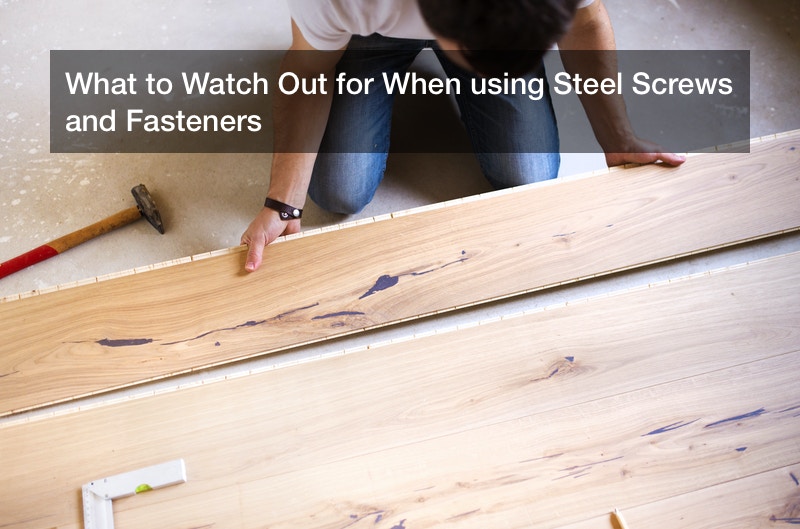Steel is one of the most common materials used for small screws and different types of fasteners. Part of the reason is that it is corrosion-resistant and durable. It can also handle significant loads without losing its strength or quality.
However, how you use it in your applications will have an impact on the quality of the end-product. The following are some mistakes you should avoid when using Steel.
Effect of Rainwater
When it rains, the water descends from the sky, collecting oxygen gas. The highly-oxygenated moisture can accelerate the corrosion of stainless steel and other metals. Also, the degree of corrosion will depend on the exposure time, and whether the water is from the rain, the tap, or the sea.
The salt in seawater accelerates the rate of corrosion. Rainwater may also be acidic, which only increases the speed at which your steel fasteners deteriorate. The environment is, therefore, an important consideration when using small screws or fasteners.
If your setup is going to experience exposure to rainwater, you may consider electro-polishing. Stainless steel has a layer of chromium oxide to protect against corrosion. Electro-polishing involves adding thickness to the layer for greater protection.
It is also advisable that you observe a regular cleaning schedule of your equipment and fasteners. Cleaning prevents the accumulation of deposits or acidic agents. That way, you can reduce the rate of corrosion on your stainless steel screws.
Surface Finish
When considering custom fastener options, you should remember that there are different types of surface finishes. They range from rough, brushed, or satin finish, among others. The quality of the surface of the screw can impact how the material responds to contaminants and corrosion.
The smoother the surface, the more resistant to corrosion your custom fasteners will be. Rougher surfaces tend to shed off the protective chromium oxide layer of the steel. The inconsistent surface can trap particles of dust and salt. In industrial applications, iron filings may grind against the surface, thereby depleting the outer layer.
When that happens, you will notice brownish stains on and around, the stainless steel custom screw. Corrosion and rust will develop much faster when exposed to rain or seawater. By choosing a consistent and smooth surface finish for your custom fastener, you can reduce the corrosion and rust.
Choosing the Wrong Grade
Understanding the grade of the material is particularly critical if you are using steel. Before making a decision, you need to understand the conditions of your applications. Will the small screws be exposed to water? Or are they more prone to contamination and impact?
The two most common grades from custom fasteners are grade 316 and grade 304. 316 has a higher rating when it comes to corrosion-resistant. So if you are going to be using your materials a few miles from the sea, you want to go for the screws with a higher grade.
Galvanic Corrosion
Galvanic corrosion occurs when there is an electrical potential between two different types of metals. Steel fasteners used on a steel material usually does not cause any problems.
However, if you use stainless steel and join it with carbon, for example, it will cause the carbon to deteriorate. In a corrosive environment, the two metals give away electrons, and in the process, allows oxidation to take place. You ought to remember that not all types of steel fastener options are the same. Carbon steel has more carbon content, which makes it sturdy and hard. However, it is more susceptible to corrosion than stainless steel.
Galvanic corrosion can be prevented by using a buffer between the two metals. A water-resistant coating and a smooth surface may also check the rate of corrosion.
In Conclusion
If you are using custom fasteners, you must understand your applications. You need to pick the right grade and have the electropolished, where necessary. You can visit our website for more information on small screws and different types of fasteners.





